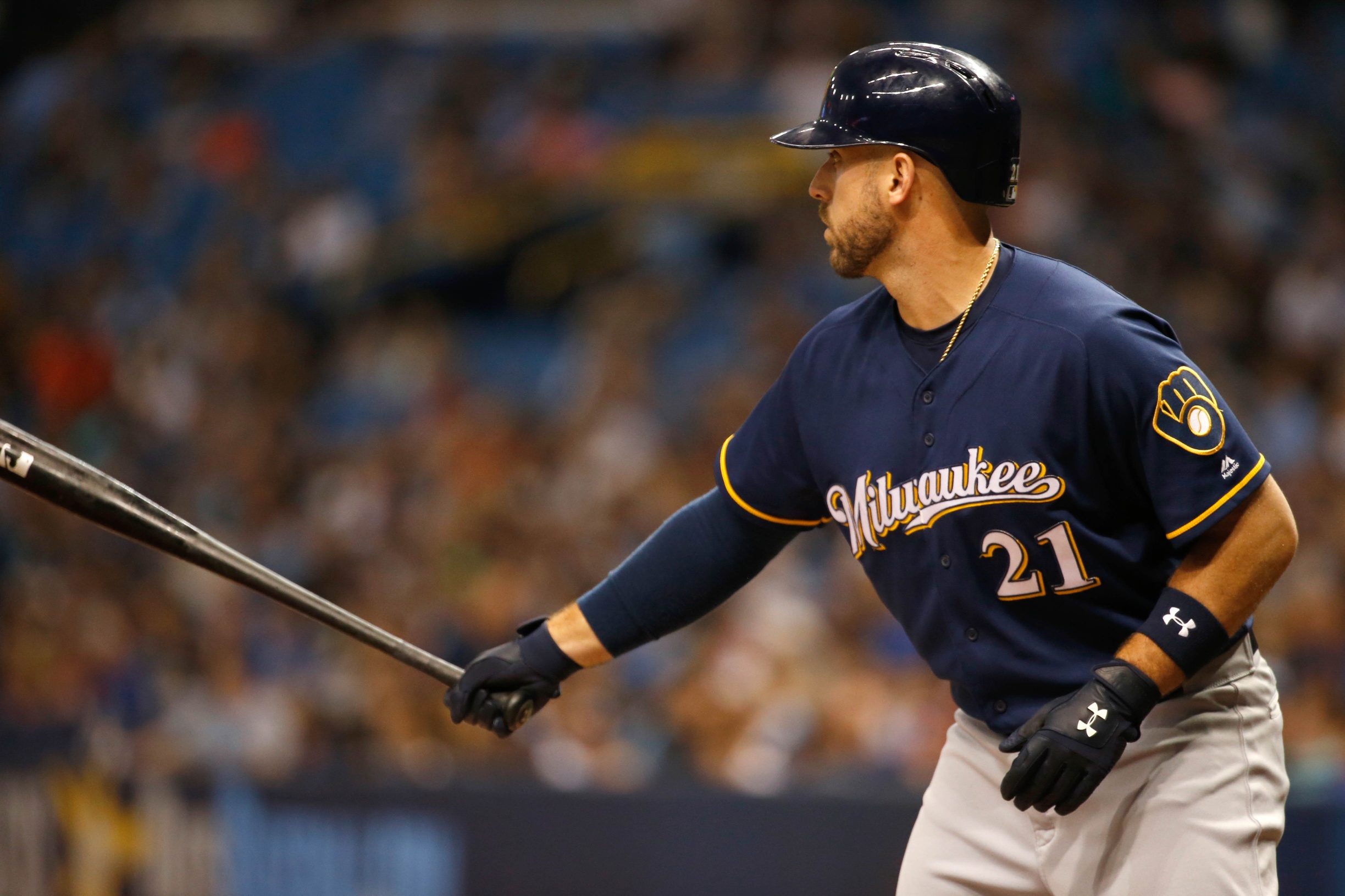A common criticism levied against the Brewers has been that they are over-reliant on home runs and too prone to strikeouts. The Brewers do lead the league in team strikeouts, but they are not an outlier in terms of the relationship between their total runs scored and the number of home runs they hit. It should come as no surprise that there are multiple ways to build a successful baseball team, and the Brewers are demonstrating that.
Despite the fact that the Brewers are outperforming preseason expectations, they are not getting particularly lucky. Nicholas Zettel has been tracking this all season on BPMilwaukee Twitter, but it bears repeating here: the team has earned its improvements. PECOTA projected the Brewers as a 78-win team before the season, but entering play Tuesday they had the run differential of an 83-win team. Even Baseball Prospectus’s second- and third-order winning percentage stats, which are less friendly to the Brewers than is pure run differential, do not even count the team as the luckiest in its own division (that honor belongs to the Pirates).
The conclusion therefore, is that the Brewers’ go-big-or-go-home approach, as it were, has not harmed the club in any huge way. The team’s overall record is not worse than it would be had it been scoring its runs in a different way. In fact, one could draw the opposite conclusion; because the team is outperforming its second- and third-order winning percentages, the home runs have helped them score more runs than they otherwise would have had their hit distribution been more normal. I would not go that far without a more exhaustive analysis, but the Brewers at the very least have not been hurt by this trend.
But this conclusion has been addressed by many writers at many different sites and across many different platforms. I am here to address the premises and why they are faulty as well. The Brewers are certainly home-run-reliant to some extent, but not in any significant sense. They do strikeout more than any other team, but strikeouts are rising league-wide, and the Brewers are not so far in front of everyone that it is worrisome.
First, the Brewers lead the league in strikeouts with 1,347, but they are only 19 ahead of the second-place Rays, who they lead in the standings by only 3.5 games. There is certainly a larger gap between the Rays and the third-place Padres, but the Brewers are not on an island in this area. And while it is true that the club is on pace to set the single-season strikeout record, with the current record held by the 2016 Brewers, the entire league is striking out more than it ever has. Only one of the top 30 single-season strikeout marks was from a team outside of this decade (interestingly, it was the 2001 Brewers).
As they are on pace to set the single-season record, it would be foolhardy to claim that the Brewers are not striking out at an incredible rate. But the rest of the league is moving in the same direction, so the phrase “all-time” does not have the same weight in this context as it might in others.
Now, the Brewers might certainly improve if they cut down their strikeouts. They have the twelfth-best offense (as measured by Total Average [TAv]) but are only nineteenth in runs, which actually understates the sequencing problem because TAv takes into account park factors and runs scored does not. But the Rays and Braves have similar team TAvs (.264, as compared to the Brewers’ .265) but have scored fewer runs, so this is not a problem unique to the Brewers. And there is a risk to trying to change players’ approaches to cut down strikeouts; the players can lose any semblance of productivity as they focus on putting the ball in play, and the offense is good enough that such a risk is not worth taking. If this is a problem that the team truly wants to address, it should acquire players with different skillsets rather than try to change the ones it currently has.
Second, the Brewers are not overly reliant on home runs. Dividing home runs by runs is a crude measurement for this given that not all home runs are solo shots, but it provides a general baseline for assessing the extent to which teams score runs on home runs or otherwise. The Brewers rank fourth in this metric, behind the Rays and slightly ahead of the Yankees, both of whom are also good teams and in playoff contention (albeit to different extents).
I do not want to give the impression that I think the Brewers’ offense cannot be improved. But the problem is not the extent to which they rely on home runs; instead, it is that they are not good enough. Too many home runs is not a bad thing; not enough players on base is (Milwaukee ranks twentieth in OBP). Too many strikeouts is not by itself the problem; it is that they are making too many outs in general. As I said at the outset, there are multiple ways to build a good offense, and hitting a lot of home runs is one of them. But getting out too often is not.
Photo Credit: Kim Klement, USAToday Sports Images
